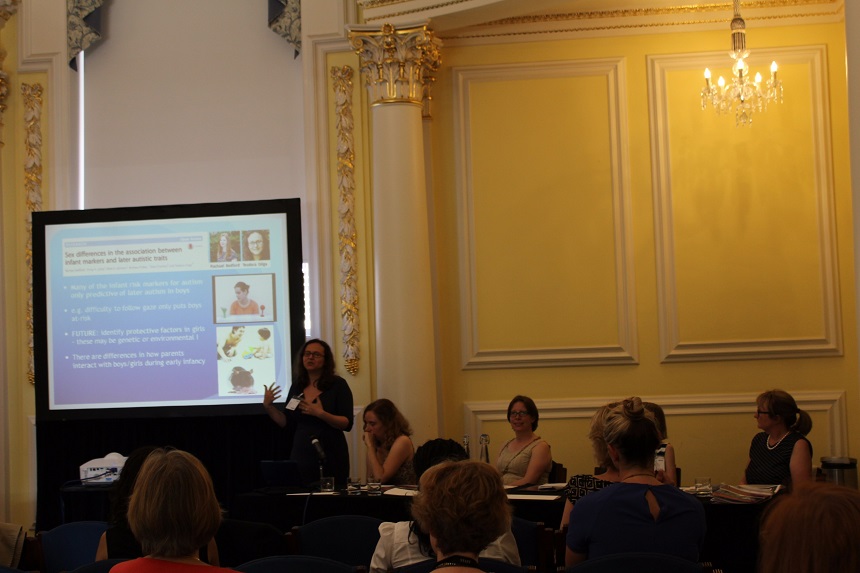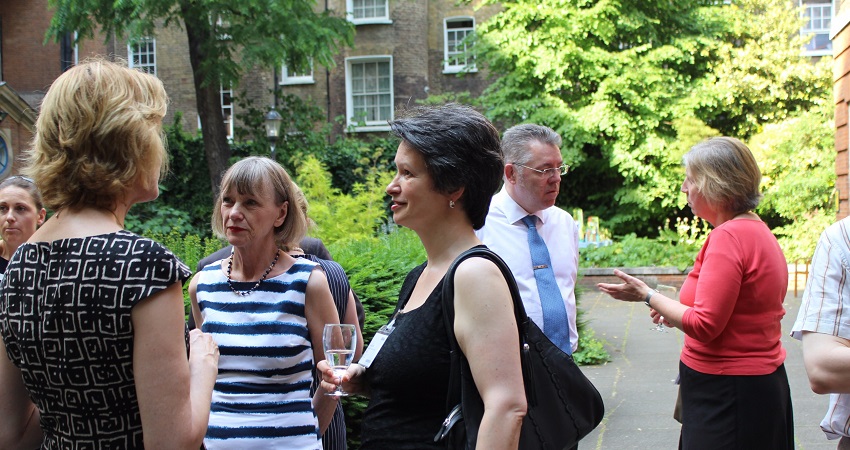Lucy Tallentire from the School of Business, Economics and Informatics reports on a celebration event for the TRIGGER project (Transforming Institutions by Gendering Contents and Gaining Equality in Research) – which aims to increase the number of women in university sectors where they are underrepresented.
On Wednesday 21 June, the Birkbeck TRIGGER team held a special event of celebration, discussion and networking at BMA House, to mark an end to the four year research project. The event provided an opportunity to share with an audience of friends, supporters and collaborators the team’s final research findings, and hear from external guests from various fields within academia and business on the challenges and successes of gender equality initiatives.
Since its inception in January 2014, TRIGGER has produced vital research to support the increasing presence of women in higher education and business where they are underrepresented. The applied project – a partnership between institutions in the Czech Republic, France, Italy and Spain – has considered and developed initiatives to foster organisational change by promoting the role of women in research and academia, in STEM subjects and in management positions.
A Legacy of Mentoring and Leadership
In his welcome address, Professor David Latchman, Master of Birkbeck College, praised the innovative nature of TRIGGER, which has helped the College to rethink the way it approaches equality through Athena SWAN more broadly, too: “While this celebration marks the end of the TRIGGER project, it is important to note that the initiatives the team have introduced, such as College-wide mentoring and carefully tailored leadership seminars, will go on past the life of the scheme itself.” As Chair of the College’s Athena SWAN committee, Professor Latchman went on to describe the transformative influence that the mentoring programme has had on women academics at Birkbeck, especially on early career researchers.
The TRIGGER project team then took to the stage to present on the following areas of research and impact:
- Networking
- Academic Mentoring
- Rethinking Research Methods to Investigate Sex Differences
- Commercialisation of the work of women scientists
- Gender cultures in research and science
- Gender and Leadership
Each member of the team reflected on the outcomes of their individual part in the project, and on how these outcomes were both impactful and applicable. The project’s focus group sessions, for example, provided a platform to hear the personal experiences of women and men in the institution to analyse the way in which the infrastructure could better support and maintain gender equality in the workplace. Similarly, panel events with external collaborators in London, Dundalk, Lund and Pisa built on internal discussions and offered insight into how these initiatives could be transformed and applied to fit in with organisations beyond Birkbeck.

Following their research dissemination, a panel of experts in their respective fields of academia and industry were given a chance to react to these findings and comment on their own experiences.
Among concerns such as the gender pay gap, lack of support following a career break, and ‘the glass ceiling, the issue most frequently addressed by the panel was that of unconscious bias, and the need to step away from calling it ‘a woman’s problem’. Gemma Irvine, Head of Policy and Strategic Planning at the Higher Education Authority in Ireland, described the effect of this on a woman as ‘not a lack of confidence in herself, but a lack of confidence in the organisation to treat them fairly and provide the right infrastructure for change. Unconscious bias is not something that can only be fixed by women – but those who have privilege are often blind to it.’
What can we learn from the TRIGGER project?
Simply recognising unconscious bias does not remove it from the system – and as a society, we must work day-to-day to chance the deeply entrenched stereotypes and imbalances. We need skilled leaders – both men and women to advocate for leadership for women – but there is also a need for women to identify role models, and aspire to the next stage in their career. The TRIGGER project has demonstrated the power of mentoring and of networks, but also the value of a balanced network; while women do not network as readily as men, removing all men from women’s networking opportunities is not a solution to the problem.
Ultimately, the short and intermediate changes, or outcomes, are not enough; we must strive for impact, changes in decision making and a culture shift to a ‘no closed doors’ policy for men and women. Only in collaboration with projects such as TRIGGER can we achieve broader changes within research and industrial communities and wider society. We must stop treating the symptoms of gender equality and start identifying and chipping away at the foundation of the problem to make a change.
The TRIGGER team would like to thank the panel, audience and its many international supporters for their work over the last four years. Find out more about TRIGGER on their website.
Many thanks to all the panellists:
- David Stringer-Lamarre, Fortis Consulting/Chairman, IoD City of London
- Amanda Bennett, Fairplay Enterprises Ltd
- Sally Hardy, Regional Studies Association
- Aggie Cooper, Aramco UK Ltd
- Dr Gemma Irvine, The Higher Education Authority, Dublin

